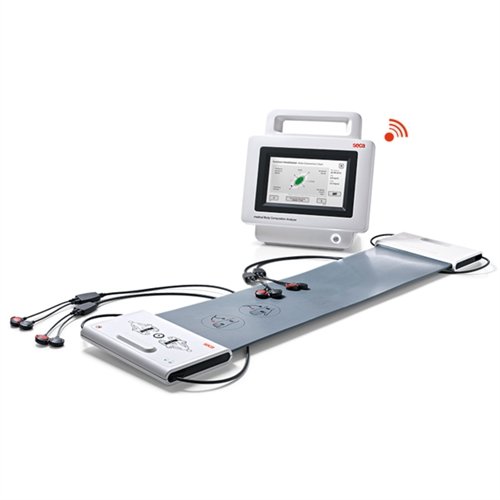
Scales lie. Measure your tissues instead.

Body Composition Testing
A person’s total body mass (weight) or BMI often doesn’t tell the whole story about their body, health, or fitness. The composition of tissue types, including fat tissue and skeletal muscle, provides a much more comprehensive picture.
For many athletes, losing excess body fat can be helpful, but not at the expense of losing too much skeletal muscle. This can be a tricky balancing act without monitoring and guidance. This is also true when trying to put on strength and muscle!
To get a complete view of your performance or physique, get your body composition tested!
Single Test = $60
4-Pack of Tests = $200
Still not sure or looking to learn more?
We provided loads more info below!

Science of Body Comp Testing
Skeletal Muscle
-
While many focus on losing excessive weight or body fat, having sufficient skeletal muscle is critical for health, performance, and long-term weight management.
-
Having low amounts of muscle (sarcopenia) increases the risk of obesity, many chronic diseases, and premature functional decline.
-
Muscle mass is the largest contributor to our resting metabolic rate (RMR), or the number of calories we burn each day. If you want a faster metabolism, get more muscles!
-
In addition to total skeletal muscle mass, your expanded report will include muscle mass by body region (torso, left/right lower limb, left/right upper limb).
Body Fat
-
Studies have shown that very high body fat is associated with many diseases. Our seca mBCA will provide a total Fat Mass Index (relative to height) as well “percent body fat”.
-
Healthy weight loss should be focused primarily on fat loss rather than total pounds. We want to retain as much muscle as possible; even if some skeletal muscle mass loss is inevitable with significant weight loss.
Visceral Fat
-
Not all extra fat tissue is the same in terms of poor health. Studies have shown that fat around the internal organs, aka. visceral fat, is a much bigger problem.
-
Visceral fat can be roughly approximated by waist circumference—the largest measurement around the abdomen. A waist-to-height ratio above 60% is associated with increased rates of metabolic syndrome & cardiovascular disease.
-
The body measurements we take combined with mBCA analysis, will provide a VAT Index. This is a score of visceral fat tissue relative to height.
Medical grade BIA
DON’T “ELECTRIAL” MEASURES STINK?
Traditionally, bioelectrical impedance analysis (BIA) measurements of body fat or muscle have been considered inferior to other methods, such as DXA scans. Largely, this has been due to the presence of many poor-quality consumer-grade devices (foot scales that only measure the lower half) on the market.
VALIDATION
When combined with body measurements and proper algorithms, the seca mBCA device we use has proven quite accurate when compared to DXA, MRI, and other body composition technologies. Numerous clinical studies have demonstrated this across a diverse range of body types and populations.






